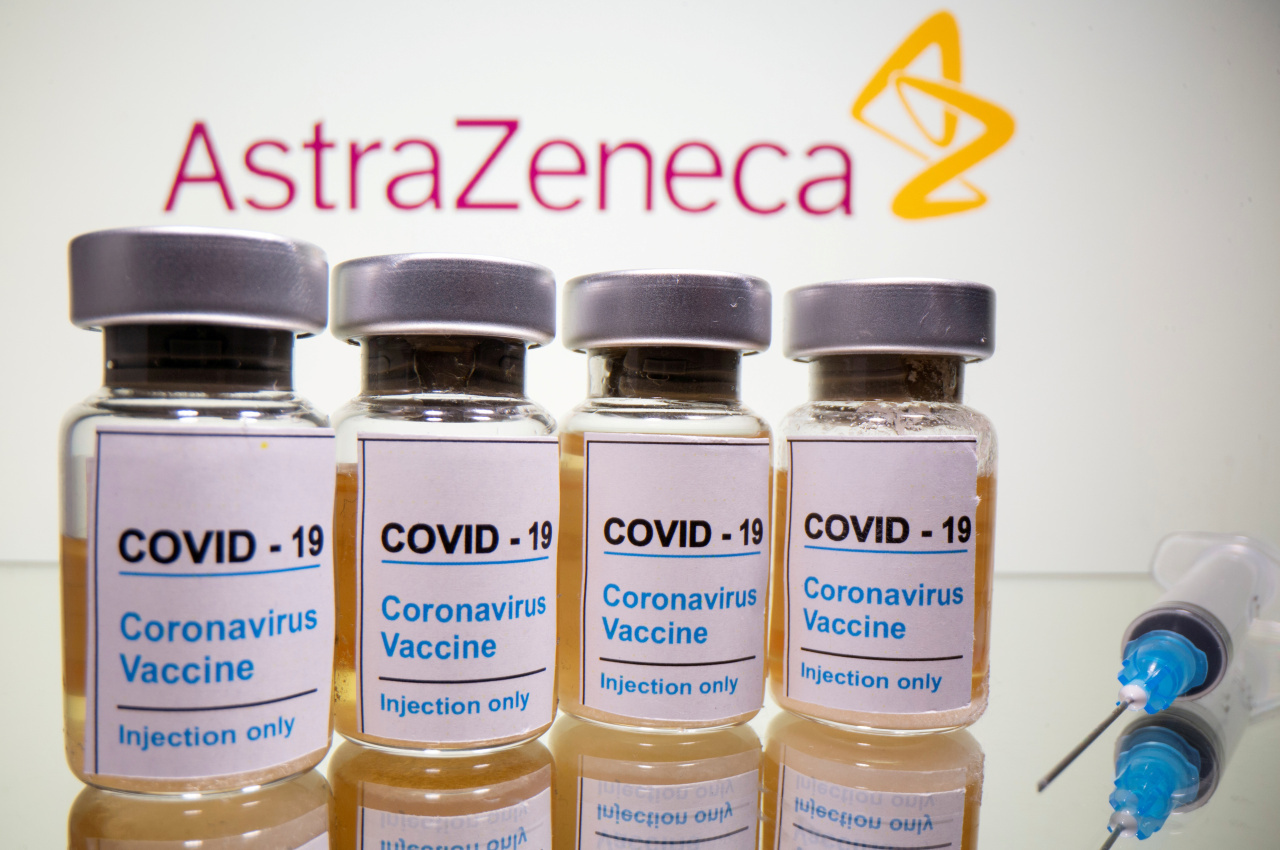The Korea Disease Control and Prevention Agency said in a press briefing Saturday that official instructions for vaccinators and emergency medical services will now include a warning about blood clotting risks following AstraZeneca vaccinations.
The update comes as the European Medicines Agency said the previous day that although the AstraZeneca COVID-19 vaccine is safe and effective, a link to rare blood clots could not be ruled out.
The European regulator urged health care providers to be alert for highly rare blood clots in people who had the vaccine, and recipients with symptoms such as headaches and bruising to seek immediate medical attention.
In the same briefing, the KDCA said in a response to The Korea Herald’s inquiry that a paramedic in his 20s, who was inoculated with the first dose of AstraZeneca vaccine on March 10, appears to have become ill with a condition called cerebral venous sinus thrombosis -- a rare type of brain clot the EMA is advising the doctors to look out for.
The KDCA said the paramedic reported experiencing a headache that persisted four to five days since the day he received the vaccine.
“Based on his brain scans, cerebral venous sinus thrombosis is the suspected diagnosis,” the KDCA said, adding that what caused the brain clot is not yet known and that a connection to the vaccine remained uncertain. The paramedic is being examined for more clues.
According to the EU agency, the cases of blood clot in the brain along with lower levels of platelets following vaccination with AstraZeneca were mostly seen in young people, more specifically women under 55 years of age.
The Paul Ehrlich Institute, the vaccine regulator in Germany, similarly noted the specific form of brain clot affecting younger women who had the vaccine in a statement earlier this week.
The German authorities are investigating if the women were on birth control bills, which are associated with increased risk of rare clots in the brain, and other potential “pro-thrombotic” conditions that are inherited or acquired, according to International Vaccine Institute Director General Dr. Jerome Kim.
“They cannot explain the cases occurring in Germany and they don't understand why it should be happening,” he said.
“Because they cannot explain it they are saying that we should continue to use the vaccine because it still appears safe, and the risks of COVID-19 outweigh the risks of this occurrence even if it is related -- which they cannot say.”
Kim said heparin-induced thrombocytopenia, which predisposes to unusual formation of clots in blood vessels, was also noticed in places where the AstraZeneca vaccine was used in a younger population.
“It’s unknown why it occurs in this cohort,” he said. “The vaccine directly or perhaps through an indirect mechanism may trigger this very rare condition, particularly in women.”
Epidemiologist Dr. Chun Byung-chul, who serves as the vice president of the Korean Vaccine Society, said AstraZeneca vaccinations should continue, but that the possible risks can’t be ignored.
“No vaccine is risk-free. You have to weigh the benefits and perils, and from what we know right now, the overall risk of serious adverse events isn’t significant enough to pause vaccinations.”
He went on, “That being said, I also think that we need to be humble before what we don’t know.”
He said the authorities must closely monitor the adverse events following immunizations and pay special attention to the demographic where the conditions are said to be more frequently observed.
He said to sustain public confidence in the vaccine, authorities should “warn and inform the public of the risks and the emerging facts.” “Trust in vaccines comes from prompt and transparent communication.”
Chun said giving vaccines other than AstraZeneca’s to younger people, until better understanding is gained, could be an option. He explained that not as many cases of similar issues were seen in the extensive data from the UK, where older people were first to be vaccinated.
“But then again, such adjustments require a careful review of the vaccine’s impact on different age groups.”
Once the vaccinations of front-line workers at COVID-19 hospitals and residents at long-term care facilities are completed in a few weeks, Korea is extending the rollout to other priority groups next in line.
Essential workers such as non-COVID-19 medical workers, child care workers, preschool and elementary school educators, firefighters and police officers are to get the AstraZeneca vaccine, while the Pfizer vaccine is reserved for those aged 75 or older, according to the government plan published Monday.
But any changes to the plan aren’t being considered at the moment, the KDCA said Saturday. The KDCA is set to make an announcement on the AstraZeneca vaccine early next week in response to the recent findings from the EMA.
So far in Korea, two blood clot cases have been found among more than 615,000 people who received the AstraZeneca vaccine, according to the government’s daily situation report. One of them is the 20-something paramedic, and the other one a chronically ill patient in her early 60s who died eight days after having the vaccine. Her death was not caused by the jab.
By Kim Arin (
arin@heraldcorp.com)







![[Today’s K-pop] Blackpink’s Jennie, Lisa invited to Coachella as solo acts](http://res.heraldm.com/phpwas/restmb_idxmake.php?idx=644&simg=/content/image/2024/11/21/20241121050099_0.jpg)
